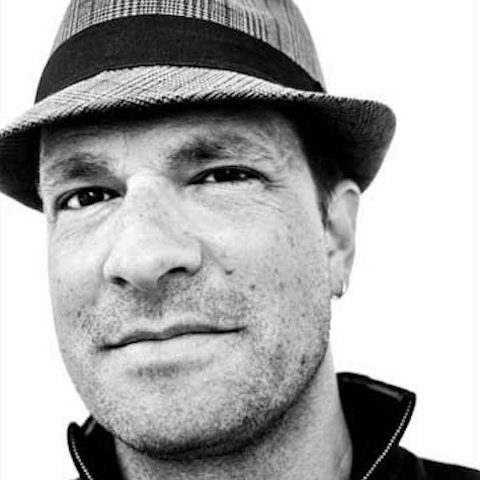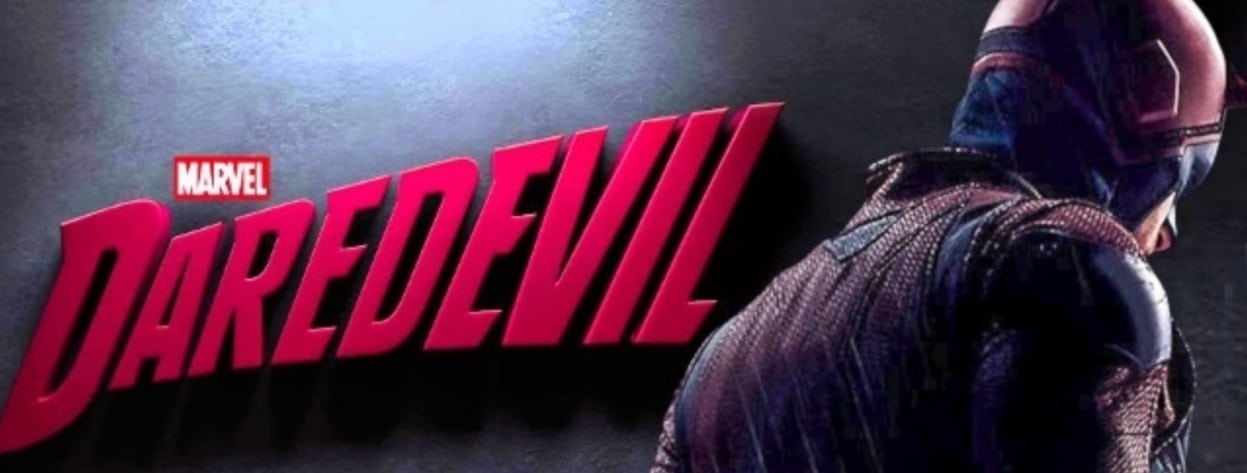DRAMA AT ITS FINEST: AN INTERVIEW WITH SAM ERNST
By Cait Mylchreest

Sam Ernst certainly knows his way around a Television Drama! He has sold 5 pilots, is currently the Co-EP on Daredevil, was a Co-EP on Hand of God, a Co-Creator/Executive Producer on SyFy’s HAVEN and consulting producer on NBC’s CRISIS, and he was a writer on USA’s popular hit THE DEAD ZONE. Learn a thing or two from Sam in our class “TV Drama 1” beginning September 17 right here at the Pad.
Sam took the time to chat with us about how he got his start in writing and what he finds so compelling about television today.
1.) How did you get your start on The Dead Zone?
My writing partner, Jim Dunn, and I sold a pilot to ABC with the producers of the Dead Zone. The pilot wasn’t picked up, but we all had a great experience on it together and we were hired onto The Dead Zone. It was our first TV staff job.
2.) Haven is based on the Stephen King short story “The Colorado Kid.” What was the writing process like for bringing this story to television?
You mean “how does a novella with no supernatural elements become a supernatural show on the SyFy Network?” Ha. First thing we did was come up with the supernatural element. I believe I said to Jim – or maybe he said to me, I never remember – “how about if it’s a town full of cursed people and for some reason reason their curses are dormant. Then, once a week, a curse comes raging back. Oh, and none of them know they’re cursed, because their families never told them.” The main issue was deciding how much backstory and serialized story to explore. Jim and I wanted quite a bit, but at first there was resistance to that. Over time, it became quite clear that the fans liked that the most, and so the show has evolved there.
3.) What is the dynamic of the Haven writers’ room like?
It’s like most writers’ rooms I think. Throw stuff at the white board, see what sticks. Then get a shape of a story and start working it through the system of notes. And more notes. The main difference year to year is that after season two we tried to work out more of the season ahead of time on a large grid, episode by episode. It helped quite a bit.
4.) Why are you drawn to science fiction and supernatural drama?
My mom let us watch Star Trek – original flavor. It’s that simple. It was in repeats, and my brother, sister and I ate crappy 70s food and had our minds blown like everyone else. I could give you all the other scifi answers (exploration of the human condition through infinite possibilities, etc) but that’s really it.
5.) You wrote the Shrek the Third video game. Do you find video game writing more challenging than screenwriting? How can screenwriters successfully make the transition in genre?
Not sure why they’d want to transition: they should do both if they can. Game writing is a different art form. It’s a ton of fun, but I think a working writer has to be ready to write in more than just one medium. The skill sets are the same: the ability to write a compelling story, efficient, powerful dialogue, good characters (though they tend to be simpler in video games). I do think game companies are playing catchup as far as their emphasis on these things – it’s partially why most video games don’t make good movies. There just isn’t enough there, there. It’s improved, a lot, so I’m hopeful.
6.) Many people, critics and viewers alike, are calling this “the Golden Age of Television,” which is really exciting for aspiring TV Drama writers! Why is television so special now?
It’s a “Golden Age” because there’s more. Quality and quantity. Just so much good stuff out there, whether you like character based drama or fast plot driven shows. It’s a great time to be a writer; I remember when I made my big move to LA to be a writer in 1999 and reality TV was taking over. Worst timing ever for me and Jim. There weren’t many cable networks doing their own scripted programming. But The Sopranos premiered that year, and while I don’t think that show changed TV, it was a harbinger of what was to come.
7.) In your opinion, what are the elements of a great pilot?
To start, it needs to have a voice – your voice. It needs to have transparent dialogue that feels true, and tells the reader what they need to know, when they need to know it, about the story and the POV of the character. It needs action lines that do more than just place characters in the scene. They need to hold the reader’s hand through the story, and shine the light where the writer wants it to shine (and nowhere else).
Characters should feel real, and character arcs needs to be tracked over the length of the script, so that rewrites focus on only what’s most important. I find that the biggest question in rewrites is understanding what, exactly, needs to be rewritten. Well, tracking character arcs is almost always where an effective draft rewrite begins. Where did the character story waver, get obtuse, drift? How can I nail it down better?
And last, because it’s last, every pilot needs an emotional and effective ending. A pilot ending that, hopefully, forces a showrunner or an agent to pick up the phone and ask you to come see them. A great ending covers a multitude of sins. In many ways, the ending is as important as the beginning.
8.) What are some of the differences you’ve experienced writing for Network vs. Cable?
I’m not sure we can make a cable/network distinction anymore. Each outlet has a perspective: ABC is so different from FOX, USA from TNT. I think the main difference these days is between networks (cable or broadcast) that know who they are and what they want to do, while other cast about second guessing themselves constantly, mired in perpetual identity crises. It take conviction to know who you are, and courage, and that can be in short supply some places.
9.) What cool secrets can your students expect to learn about writing drama pilots in your class?
I think it’s what staff writers can always learn from experienced writers: how to avoid the blind alleys a little better. How to trust the writing process, and let it help you get to the story you want to tell. We all want to walk into a room, or start a new script, and be brilliant from the get-go. But it never works out that way. What works is writing and more writing and listening to – and avoiding – the mistakes that writers have made time and again. Every room I’ve been I’ve seen the senior writers speaking fast, using shorthand, referencing blind alleys they’ve taken and want to avoid. It’s why they get the broken script to fix overnight, take the panicked production calls. For people starting out, learning some of those skills will not only save them an enormous amount of time, it will help get the story from their minds onto the page, get them hired back, or that script sold. Their might be easier ways to do it, but I haven’t found them yet!
Thank you so much for that informative interview, Sam! Catch his class, “TV Drama 1” beginning September 17 right at the Pad.


